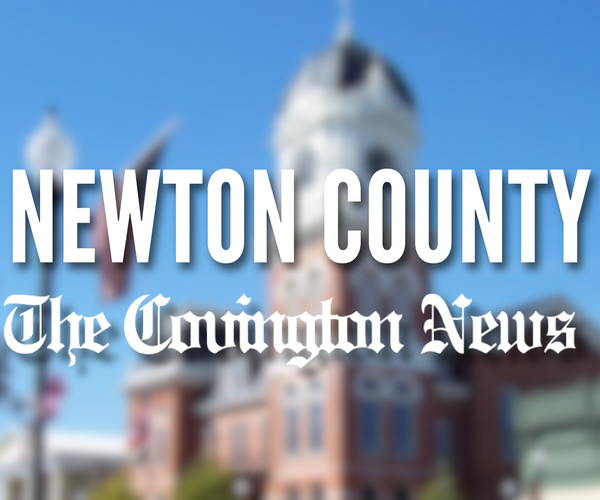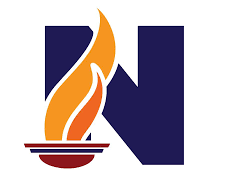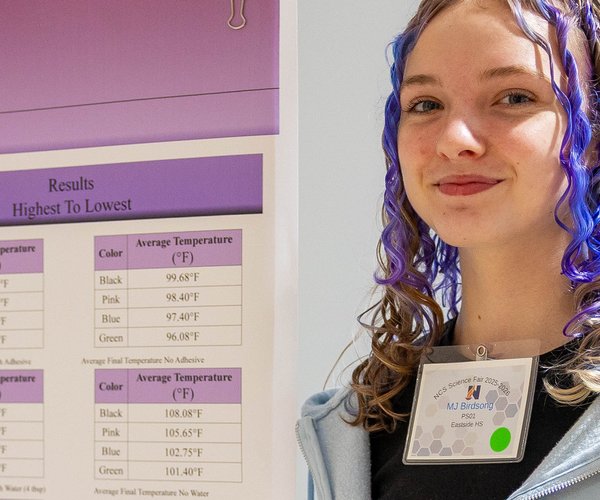COVINGTON, Ga. — The Newton County Sheriff’s Office released a Resource and Information Guide aimed to provide every individual with important information that could save a life during the COVID-19 pandemic.
NUMBERS TO KEEP BOOKMARKED:
Do you need support? Please know you are not alone.
- Crises Counselors are available 24 hours, 7 days a week for free by texting SHARE to 741741.
- The National Suicide Prevention Lifeline is available 24 hours, 7 days a week for free by calling 800-273-TALK (8255)
- The Trevor Project, for the LGBTQ community and their friends, can be contact 24 hours, 7 days a week by calling 866-488-7386 or by texting “START” to 678678.
- The Trans LifeLine can be contact 24 hours, 7 days a week by calling 877-565-8860.
Need to request a welfare check?
Call 911.
Think you may have been exposed to COVID-19?
Please call your local healthcare provider or an urgent care clinic. Please do not show up unannounced to an emergency room or healthcare facility; you could put others at risk.
Need to contact the COVID-19 hotline?
The COVID-19 hotline can be contacted by phone via 844-442-2681.
Want to be tested for COVID-19?
FREE drive-through testing is available through the Rockdale, Gwinnett, and Newton County Health Departments. Appointments available Monday through Saturday. Please call 770-513-5631 to schedule an appointment. The call center is open 8 a.m. to 7 p.m. on Monday through Friday and 9 a.m. to 4 p.m. on Saturday.
HOW TO HANDLE STRESS AND ANXIETY BECAUSE OF COVID-19:
Manage the information you read
- Limit your daily and weekly news consumption because watching the same news over and over again can increase stress and anxiety
- Always verify news sources before sharing anything; false information spreads fast on social media
- The CDC and Georgia Department of Public Health are great resources for information on COVID-19
Follow your daily routines
- Following daily routines can help you feel in control of your life, such as making your bed and getting dressed
Stay physically health and active
- Exercise helps improve both mental and physical health; it’s important to keep moving as part of your daily routine
- Find a routine that works with your needs and abilities; not all routines require equipment and can be done for free in the comfort of your home
- Talk with your primary physician if you do not typically exercise on the daily or have any health concerns
- Free exercise videos can be found on YouTube, such as dance routines, yoga, cardio, etc.
Stay mentally healthy
- Find an online support group to get involved in
- Know ways to get help in a mental health emergency; please review the contact numbers listed at the beginning of this guide
- Contact your local NAMI Affiliate or NAMI State Organization for additional information on programs in your area
- Read the Anxiety and Depression Association of America COVID-19 tips and resources
Stay relaxed
- Mindfulness can help reduce stress, as proven in medical research
- Practice medication to help feel calmer and more relaxed; you can download meditation apps on your phone
- Meditation apps include Headspace, Calm, Simple Habit, Intimind (Spanish), and Liberate
- Try breathing exercises to help stay calm; may also be helpful in managing anxiety
- Breathing exercises to try include Diaphragmatic and Box Breathing
Stay connected with friends, family and colleagues
- Stay connected with others through phone calls, emails, social media, and video calls
- Always ask for help when you need it; offer to help your friends and family, if needed
- Virtual activities is a great way to stay connected; play video games, do at-home crafts over video call, read the same book, watch the same movie, or join an online exercise class
- Keep in touch with family and friends who have limited social contact, such as the elderly and those with chronic health conditions
GUIDE TO PREVENTING THE SPREAD OF COVID-19:
The CDC offers a self-checker guide through their website to help you make decisions and seek appropriate medical care.
If you are sick with COVID-19…
Stay at home
- If you have tested positive for COVID-19, you must not leave your home unless you need medical care or an emergency occurs, such as a fire.
- If seeking medical care, call ahead to alert your provider that you have COVID-19.
Practice social distancing
- The CDC recommends keeping 6 feet away from others, if possible.
- You should stay away from others in your household, if possible.
Wear a mask
- You should wear a face mask when around other individuals. The mask does not need to be a N95 respirator.
Keep hands clean
- Wash hands often with warm water and soap for a minimum of 20 seconds.
- If soap is unavailable, use hand sanitizer.
Keep high-traffic areas clean
- Clean doorknobs and countertops throughout the day.
- Wear gloves and make sure to have good ventilation while cleaning.
Monitor symptoms
- Seek medical attention as soon as possible if symptoms worsen, such as difficulty breathing
- You must remain under home insolation until no fever has occurred for at least 72 hours, other symptoms have improved, and at least seven days passed since the first symptoms appeared
If you suspect you were exposed to someone with COVID-19…
Stay at home
- You should monitor your symptoms and avoid going out in public, including work and school, for 14 days
Notify close contacts
- Notify your friends, coworkers, family, etc. if you suspect you were exposed so they can also monitor for symptoms
- Notify your healthcare provider if you are age 60 or above as you may have an increased risk of infection. Call ahead; do not arrive unannounced at the doctor’s office.
THE UNINSURED AND HEALTH INSURANCE:
How to get care when you don’t have health insurance or a regular provider…
Find health insurance you can afford
- Our recommendation is to use HealthCare.gov to see if you qualify for affordable healthcare
- Medicare is expanding their telehealth resources to allow you to see a provider over chat or video call
Choosing between health insurance plans
- Determine the cost of the plan; compare deductibles, monthly premiums, co-pas and/or co-insurance
- Determine whether the providers you want to see are covered under the plan
- Determine how much the plan will cover for your prescription medications
How to get immediate care when you are uninsured…
Getting the care you need
- All emergency departments that participate in Medicare (which is most hospitals in the U.S.) are required to see you, even if you are unable to pay them back
- Federally-funded health centers provide care regardless of whether you are insured or not, or whether or not you can afford to pay them back.
- Clinics can be found through the National Association of Free & Charitable Clinics
- Free Clinic Director for medical/non-mental health
- Local resources can be found by visiting helpwhenyouneedit.org and 211.org
For immigrant communities
- Update on health care access for immigrants and their family members can be found on the National Immigration Law Center website
- Sign up for updates through the National Immigration Law Center
- Immigrants can continue to receive health care at community health centers, regardless of immigration status
- Some immigrants are eligible for Medicaid, the Children’s Health Insurance Program, and the Affordable Care Act health exchange
- A list of medical care and assistance available to immigrants can be found at the National Immigration Law Center’s website
FINANCIAL ASSISTANCE PROGRAMS:
General assistance programs
- The Coronavirus Aid, Relief, and Economic Security (CARES) Act provides assistance for both individuals and small businesses
- Information on assistance programs and charity organizations aimed to help individuals pay their bills can be found at needhelppayingbills.com
- Aunt Bertha is an online resource that connects user to free and reduced medical care, food, housing, transportation, etc.
- 211 helps with referrals to agencies and community organizations that offer emergency financial assistance to those in need
- Information about government programs that help with bill payment, temporary assistant, jobs/unemployment, credit, etc. can be found at usa.gov/help-with-bills
Assistance with medical bills
- The Assistance Fund: tafcares.org
- Rise Above the Disorder: youarerad.org
- Patient Access Network Foundation: panfoundation.org
- Patient Advocate Foundation: patientadvocate.org
- HealthWell Foundation: healthwellfoundation.org
Assistance with medications
- Medical Assistance Tool: medicineassistancetool.org
- Needy Meds can be contacted by phone at 800-503-6897 or through their website at needymeds.org
- Rx Assist: rxassist.org
- Rx Hope: rxhope.com
- GoodRx: goodrx.com
- USARX: www.usarx.com
- Blink Prescription Assistance: blinkhealth.com
Assistance with food
- Feeding America operates food banks throughout the states to reduce hunger
- Various school districts, including the Newton County School System, is providing free breakfast and lunch to school-aged kids Monday through Friday. Visit the NCSS’ website for more information regarding locations for meal picks ups in Newton County.
Assistance with small businesses
- Consult with your bank or lender about loan options and what is most beneficial for you and your business
- The Georgia Department of Small Businesses is offering Disaster Assistance to small businesses economically impacted by COVID-19. The deadline to apply for the loan is Dec. 18, 2020.
- The U.S. Small Business Administration has a resource page that provides a list of relief programs for small business owners
- Small Business Majority also has a resource page for small business owners





